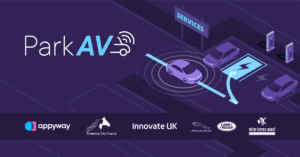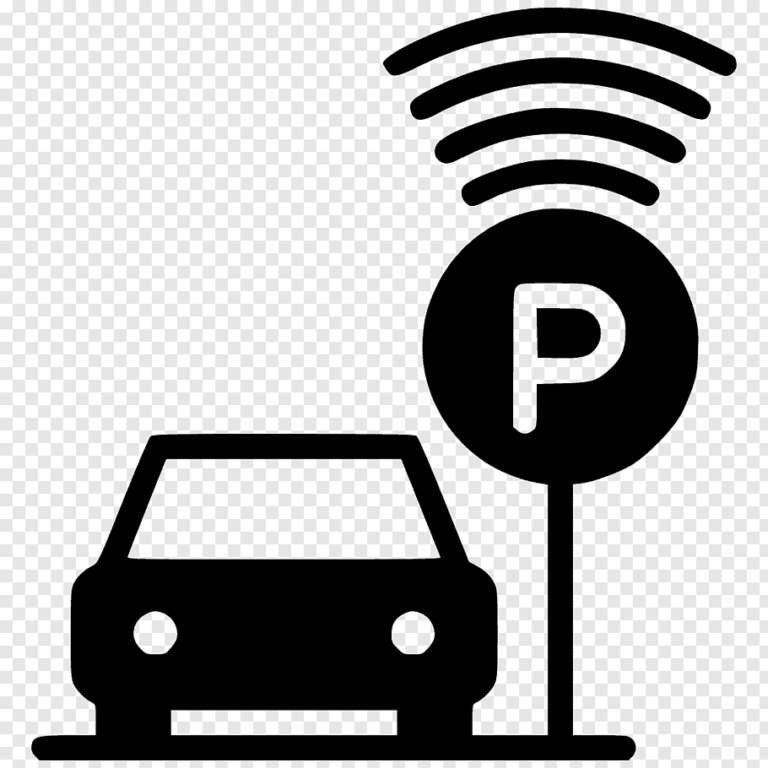An Innovate UK funded research consortium to support the development of automated valet parking in connected and autonomous vehicles (CAVs) has been announced.
The ParkAV project is being led by a consortium made up of parking app developer AppyWay, Jaguar Land Rover, Coventry City Council, Milton Keynes Council and managed by WhiteWillow Consulting.
It aims to solve issues of where CAVs will go to drop off passengers, how they park between trips to recharge, access storage, or be serviced, and blend the relationship between on and off-street parking to support Mobility-as-a-Service (MaaS) operators.
While automated valet parking is currently being explored at a technical level by vehicle manufacturers globally, the ParkAV consortium suggests that “developing a scalable and sustainable framework to see automated valet parking become commonplace, and monetised, requires a deeper public and private sector collaboration”.

Ben Boutcher-West, head of mobility for AppyWay, said: “A key deliverable within the project has been a detailed framework for both the flow of data and the flow of money to ensure automated valet parking is viable solution.
“Beyond just the vehicle technology, automated valet parking looks to deliver the function within a mobility subscription, one that manages topics such as Value Added Tax, all suppliers and even EV payment, in one technical and commercial interface.”
The group has identified what it describes as “baseline requirements and considerations across four key areas”:
– User experience: what do consumers/passengers want and expect?
– Commercial model: how are all parties active within an automated valet parking session compensated? How will the market opportunity be unlocked to enable scale?
– Integration: how do the physical and digital realms integrate across on and off-street infrastructure? How do cleaning and valet services access vehicles.
– Local government integration: off-street parking works best when it compliments on-street provision and supports local transport and traffic policies. Solutions that support both are important requirements for the mobility-as-a-service marketplace.
Key to the research is to understand the flow of money and data that will enable multiple on and off-street operators and service providers to work together, presenting the operator and end-user with a single interface with which to do business.
A data and money exchange model has been developed; ensuring systems scale across multiple sites and are commercially and socially viable.
According to the consortium, a concept it has coined MaaSpark (dynamic kerbside access and integrated payments) is required to scale the rollout of shared, connected and one-day autonomous vehicles and to improve parking for all road users.
Based on current findings, the ParkAV project suggests the following to central government:
– Change the Road Traffic Act to allow short term parking in bays dedicated for other users and allow dynamic payment / reservation of parking bays;
– Allow digital and dynamic Traffic Regulation Orders (TROs) captured from roadside data to enable digital coverage for the whole UK. Within this, rename TRO to Mobility Enabling Order to emphasise the change in thinking;
– Mandate standards that support interoperability from parking payment systems;
– Have a customer and business centric view of how CAVs influence land use and development planning to encourage adaptability of land use and growth with a technology agnostic approach.
For local government, the ParkAV project suggests:
– Develop new approaches to more open parking contracts, based on outcome based key performance indicators with more risk taken by the contractor;
– See MaaSpark as an important enabler of MaaS, rather than a competitor/ blocker to it;
– Develop ways to charge wholesale prices for parking by changing contract approaches;
– Consider and plan now for future AV parking within new developments, allowing for future change of use.
Want to read similar stories?
Lyon Airport to expand robotic parking service
Volkswagen developing mobile charging robot for electric vehicles
Florida residential development boasts world’s largest AGV parking system








